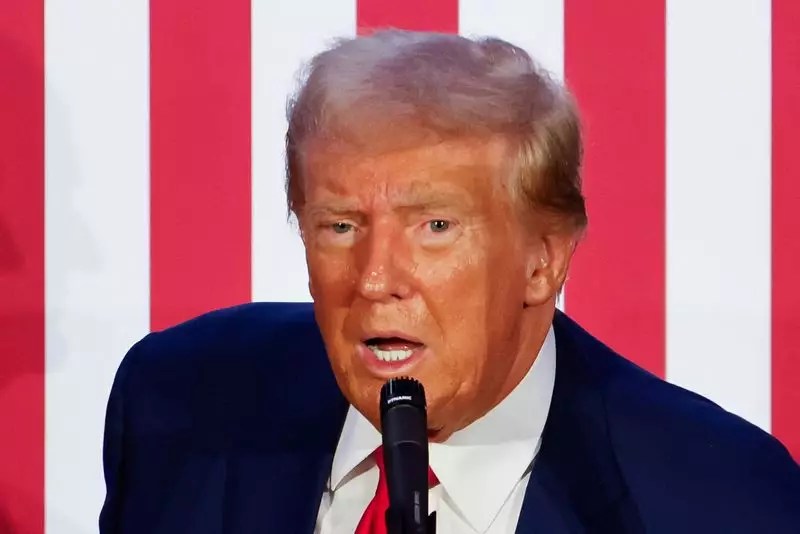The upcoming U.S. presidential election carries significant implications for global markets, particularly in Europe. Charles Gave of Gavekal Research posits that a strong victory for the Republican party could catalyze a market downturn in the eurozone, advocating for investors to quickly divest from the euro and French bonds should this scenario materialize. The reasoning behind this caution is rooted in the precarious state of the eurozone’s economic health, with France embodying the concerns surrounding escalating debt and deficits.
Gave’s perspective underlines an essential connection between U.S. political developments and reactions in European financial markets. If the Republicans secure a decisive win, the implications could reverberate across the Atlantic, affecting currencies, bonds, and investor sentiment in European nations—something investors should factor into their strategies.
The analogy drawn by Gave to the U.S. elections of the 1980s provides valuable insight into the potential ramifications of a Republican victory. He emphasizes the transformative economic policy shifts initiated by Ronald Reagan after his 1984 win. Such a historical reference highlights the possibility of altered fiscal strategies should a Republican lead the charge in Congress alongside a second Trump administration. The expectation of tax cuts and a streamlined Federal government could enhance returns for U.S. corporations, thereby influencing investment dynamics worldwide.
This historical lens not only serves as a cautionary tale but also illustrates the cyclical nature of economic policy shifts in response to political changes. If history were to repeat itself, European investors must tread carefully. The alarm bells Gave rings echo the turbulence faced by countries such as Greece or those in Latin America during their respective crises, reinforcing the need for vigilance in the current economic climate.
Implications of Higher U.S. Interest Rates
An additional concern highlighted by Gave centers on the potential rise in U.S. long-term interest rates should Republicans gain traction. This increase could lead to a corresponding hike in long-term rates in other major economies, including France, exacerbating fiscal challenges in the region. With France already grappling with increasing debt without the counterbalance of robust economic growth, the prospect of higher borrowing costs could precipitate a financial crisis reminiscent of previous economic catastrophes.
By framing France’s economic struggles in this light, Gave presents a compelling argument for investors to reassess their exposure to the euro and French bonds. The fear is not unfounded; should the eurozone remain stagnant in growth while U.S. interest rates rise, it could plunge France into a fiscal morass likened to that of Latin America in the 1980s or Greece in 2011.
The U.S. election’s uncertainty presents a pivotal moment for global markets, particularly in Europe. Investors are encouraged to remain acutely aware of the interconnected nature of political outcomes and market reactions. While Gave’s insights offer a cautious approach to the potential impacts of a Republican win, they also serve as a reminder of the inherent unpredictability within financial markets. As the election approaches, firms and individual investors should evaluate their positions carefully, preparing for the possible outcomes that could reshape economic landscapes on both sides of the Atlantic.


Leave a Reply